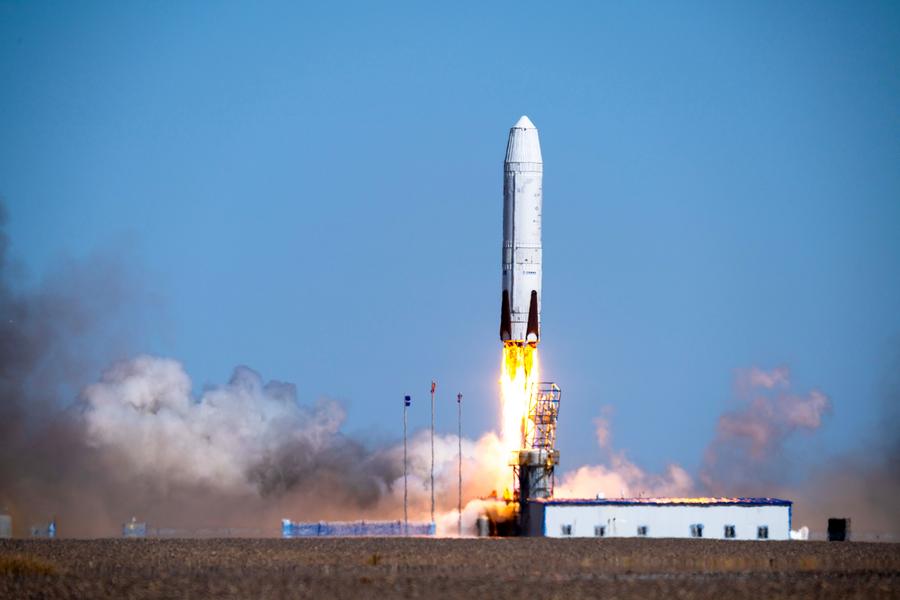
NANJING, Oct. 26 (Xinhua) -- Chinese rocket startup Deep Blue Aerospace recently announced that it plans to carry out commercial suborbital flights in 2027, projecting a ticket price of about 1.5 million yuan (210,674 U.S. dollars).
The suborbital flights will last approximately 12 minutes, during which time the spacecraft will fly to an altitude of 100 kilometers, but will not enter orbit, according to Deep Blue.
The manned spacecraft has six panoramic windows, can accommodate up to six passengers, and is designed to be used over 50 times, the company said.
The spacecraft is approximately 4 meters tall, with a maximum diameter of 3.5 meters and a takeoff weight of 7.9 tonnes. It is expected to ascend to altitudes between 100 kilometers and 150 kilometers, providing a zero-gravity experience that will last up to five minutes, according to Deep Blue.
The company pre-sold two tickets for its 2027 suborbital flights during an e-commerce livestream activity on Thursday, with each ticket charged at a discounted price of 1 million yuan.
The successful purchasers have paid a deposit of 50,000 yuan per ticket, but Deep Blue requires interested customers to sign contracts offline and visit the company before making their final payment.
The startup plans to subject its Nebula-1 rocket to multiple recovery and reuse tests in 2025, and complete dozens of tests on its manned spacecraft and rocket combination in 2026.
The oxygen and kerosene-fueled Nebula-1 is Deep Blue's first reusable launch vehicle. It completed 10 of its 11 key verification tasks during its first high-altitude vertical recovery flight test last month, but experienced an anomaly in the final landing phase, leading to a fracture in the body of the rocket.
Despite these imperfect results, Zhao Ya, executive president of Deep Blue, says that the test has provided valuable data and experience to help the company identify problems and deficiencies, and to improve the performance and reliability of the rocket.
Deep Blue has said that its decision to sell tickets three years in advance stems from a deep awareness of the complexities and risks involved in rocket technology. The company is dedicated to rigorous research and development, extensive testing and performance optimization to ensure its rocket meets the highest safety standards.













